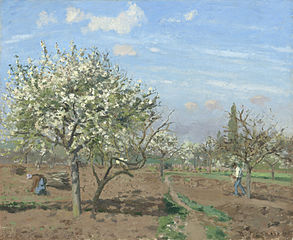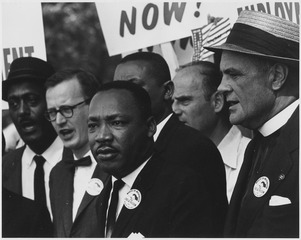This post is part of a series by Justin Merrill describing his personal experience with immigration and his embrace of open borders. It is part of our ongoing series of posts that are based on personal anecdotes.
I have been offered the opportunity to write some guest blog posts of my experiences with immigration. My area of expertise is money, banking and finance, not immigration policy. I stay fairly current of the research on immigration, but I am a consumer, not a producer of it. Despite my specialization, I believe that a peaceful foreign policy and open borders are more urgent than any free banking reforms, which says a lot. I’ve decided to share my transformative personal experiences in chronological order to provide their proper context.
I was born in Ellensburg, Washington, a smallish town in the center of the state. It was an agricultural community that often relied on immigrant help. Tree Top Fruit Company is a cooperative based in the neighboring town of Selah and farms, ranches and orchards filled the countryside. Ellensburg also is home to a university whose sister university is in Japan. My mother worked at the university and I ended up learning a lot from her Japanese exchange student interns. Maybe it was fate that I’d end up marrying a Japanese and living in Japan (a future story). But this was my childhood experience with immigrants, mostly Japanese and Mexican. I lived in a community that had both a lot of nativists and immigrants. It was a microcosm of the immigration debate because both sides of the argument were so visible. Clearly the agricultural economy relied on immigrants, but some of those same immigrants caused social ills, such as crime and drains on public resources. Yakima, WA, the city nearest the orchards of Selah, had at or near the highest violent crime rates per capita in the US in the early 90’s, earning the moniker “Crackima” for its rampant drugs and gangs. Conventional wisdom was that the gangs consisted almost entirely of immigrants, who came here to work in orchards, or their children, who then turned to a life of crime, especially if they were here illegally and had no legitimate means of employment. Yakima’s crime was notoriously bad and its ills were perceived to be related to immigration. In school, we played sports against another small town called Mattawa, whose population is 97% Hispanic. Seeing the town’s poverty, crime and education system drowning in ESL students who were failing to adjust planted a seed of doubt in my young mind as to the merits of open immigration. These observations plus some additional experiences with crime formed my nativist beliefs; that is, until I worked in an orchard.
During my adolescent years I’d often spend my summers living with my cousin, Colin, in Idaho. Usually we’d help on our Grandma’s ranch and spend the rest of the time playing, but when we were 14 we decided it was time to get a job that paid. The best paying job we could have gotten was a stock clerk working at a grocery store, but we were too far from town and too young to drive. The only job we were qualified for that was within our bicycling range was working in an orchard at the top of the lane. Colin and I were in for a shock. Aside from the family that owned the business, we were the only native English speaking people out of hundreds of employees. We made the minimum wage, $5.10 at the time. The hours were early. We’d start by 5:00 am sometimes so we could get as much work in before it got too hot in the field. We were put under the supervision of the boss’s son and were treated differently than the other employees. Most employees did the same job over and over. If you picked fruit in the field, that’s what you always did. Women were more likely to stand on the conveyor line sorting fruit by quality. It was air conditioned, but an arduous job. It required standing on your feet and constantly combing through the fruit with both hands working on the conveyor belt, sorting the good fruit to go to fresh produce and the badly bruised fruit to get turned into jam. Colin and I started doing this, but after a week or so they moved us into the orchard. Usually we would help load the picked fruit onto a truck, but often we were given special tasks. The tasks they gave us usually required detailed instructions, such as how to prune this kind of tree specifically, and I noticed how much our native language skills were an advantage, despite our relative lack of experience compared to our Spanish speaking coworkers.
Over time, Colin and I became more friendly towards (less scared of) the Hispanic workers and started to learn Spanish from them. We learned what life was like for them back in Mexico, and one hot afternoon, they let us off early for safety and the workers invited us to a barbeque in their residence, which was almost like a camp. By then it started to click. These were some of the hardest working, nicest, most caring people I’d ever met. This smashed every stereotype I’d had from the bad towns in Washington. I realized that punishing these people because of some gang members was wrong. I also realized that maybe the restrictive immigration policies caused crime as an unintended consequence by preventing undocumented immigrants from attaining work. I realized that what was a summer job to earn some money to buy CDs and movies for two teenagers was the livelihood of these people. We took a $5/hour job because we were limited to a five mile radius. They took the same job but had to leave their home country and travel over a thousand miles away from home for the summer. And even while at the same job, our experience wasn’t the same. Our language advantage gave us a leg up, despite being only fourteen. This is the summer when I became an open borders advocate.
The painting of an orchard featured at the top of this post is by Camille Pissarro, and available in the public domain.


